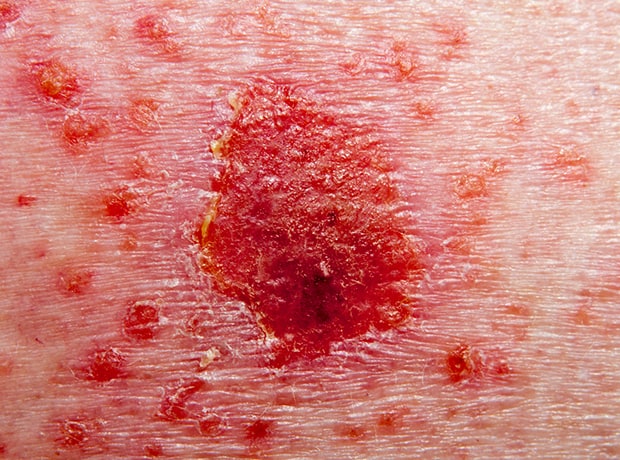Sanofi and Regeneron have announced that Dupixent (dupilumab) showed positive topline results in a Phase III trial of children aged six to 11 years with severe atopic dermatitis.
The pivotal trial met its primary and secondary endpoints, which were the proportion of patients achieving an Investigator’s Global Assessment (IGA) score of 0 (clear) or 1 (almost clear) and 75% improvement in Eczema Area and Severity Index (EASI-75, the co-primary endpoint outside of the US).
Further, the data showed that for children with severe atopic dermatitis (covering nearly 60% of their skin surface on average), adding Dupixent to standard-of-care topical corticosteroids (TCS) significantly improved measures of overall disease severity, skin clearing, itching and health-related quality of life, compared to TCS alone.
Specifically, 33% of patients who received Dupixent every four weeks (300 mg) and 30% of patients who received Dupixent every two weeks achieved clear or almost clear skin and 70% of patients who received Dupixent every four weeks and 67% of patients who received Dupixent every two weeks achieved 75% or greater skin improvement.
The safety data were also consistent with the previously documented safety profile of Dupixent in older populations, including a numerically lower rate of skin infections compared to placebo.
“In this trial, children with severe atopic dermatitis had uncontrolled disease covering, on average, nearly 60% of their skin. The unrelenting symptoms of this disease, which impact not just the child but the whole family, include widespread rashes, intense and persistent itching, and skin lesions,” said John Reed, global head of research and development at Sanofi.
He went on to explain, “Symptoms of severe atopic dermatitis can take a toll on children both physically and emotionally. We are encouraged by these results, which demonstrate that Dupixent improved skin lesions, reduced itching, cleared the skin and importantly, improved health-related quality of life measures for these young patients.”
The drug is a fully-human monoclonal antibody that inhibits the signalling of the interleukin-4 (IL-4) and interleukin-13 (IL-13) proteins.










